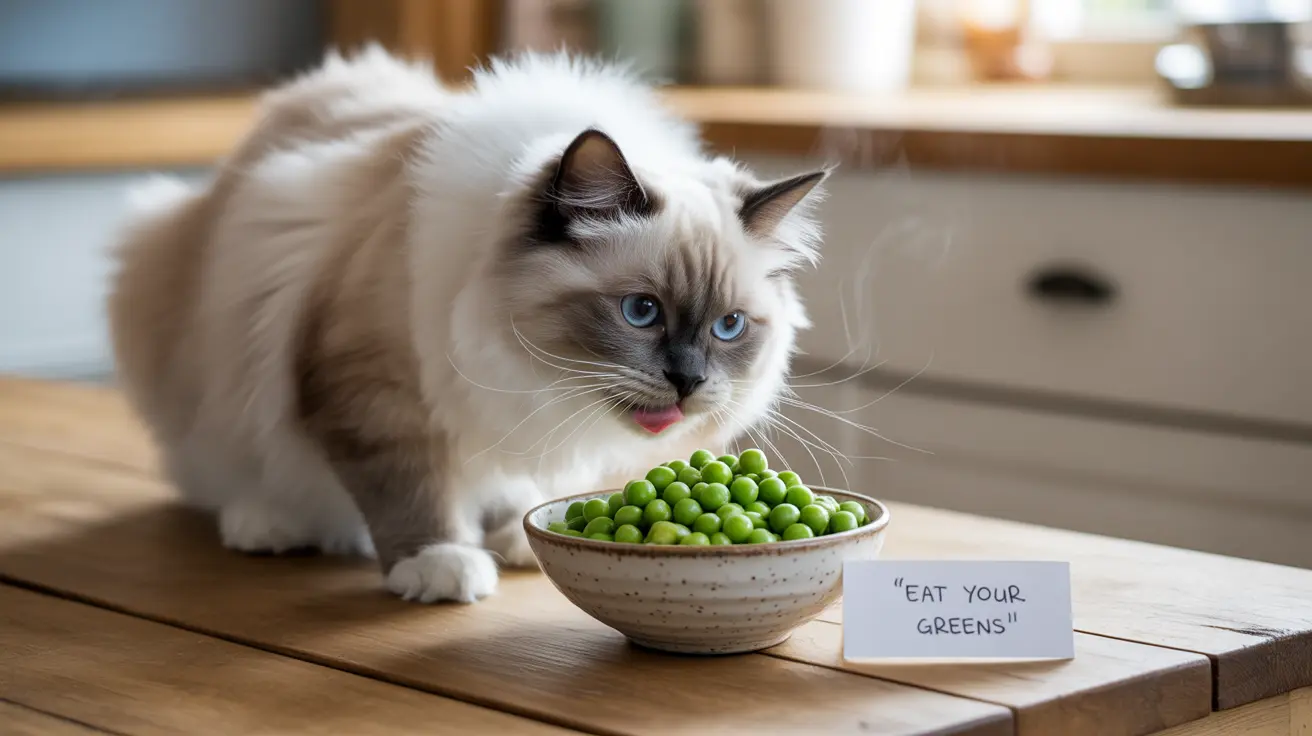As a responsible pet owner, you might wonder about expanding your cat's diet beyond traditional cat food. One common question that arises is whether peas are a safe and nutritious option for our feline friends. This comprehensive guide will explore everything you need to know about cats and peas, helping you make informed decisions about your pet's nutrition.
Understanding Peas in a Cat's Diet
Cats are obligate carnivores, which means their diet primarily consists of meat. However, some vegetables like peas can be introduced as an occasional treat. Peas are non-toxic to cats and can provide some minimal nutritional benefits when served correctly.
Nutritional Breakdown of Peas for Cats
While peas aren't a nutritional powerhouse for cats, they do offer some health advantages:
- Vitamins A, B, C, and K
- Minerals like iron and zinc
- Low-calorie content
- Small amount of dietary fiber
Safe Preparation and Serving Guidelines
Not all peas are created equal when it comes to feline consumption. Here are some crucial guidelines for serving peas to your cat:
Types of Peas Safe for Cats
- Garden peas (without pods)
- Snap peas (with or without pods)
- Snow peas (without pods)
Preparation Tips
When preparing peas for your cat, follow these important rules:
- Always serve plain peas
- Avoid added salt, butter, oil, or seasonings
- Cook or serve fresh/frozen peas
- Limit serving to less than one tablespoon per week
Potential Risks and Precautions
While peas can be a safe treat, they're not without potential risks. Cats may experience digestive issues if peas are overfed or improperly prepared.
Common Digestive Concerns
- Vomiting
- Diarrhea
- Flatulence
- Constipation
- Potential weight gain from excessive carbohydrate intake
Warning Signs to Watch For
Monitor your cat closely after introducing peas. Signs of intolerance or allergic reaction may include:
- Persistent vomiting
- Diarrhea
- Unusual lethargy
- Lack of appetite
What to Avoid: Peas That Can Harm Your Cat
Not all pea preparations are safe for feline consumption. Steer clear of:
- Canned peas (high sodium content)
- Peas with added preservatives
- Most pea pods (choking hazard)
- Seasoned or flavored peas
Introducing Peas to Your Cat's Diet
If you're interested in adding peas as an occasional treat, follow these steps:
- Start with a very small amount
- Observe your cat for any adverse reactions
- Consult with your veterinarian before making significant dietary changes
- Never replace regular cat food with peas
Frequently Asked Questions
Can cats eat peas, and are they safe for feline health?
Yes, cats can eat peas in moderation. They are non-toxic and can be a safe occasional treat when prepared properly.
How many peas can I safely give my cat as an occasional snack?
Limit peas to less than one tablespoon per week to avoid digestive issues or nutritional imbalances.
What are the benefits and risks of including peas in a cat's diet?
Benefits include some vitamins and minerals, while risks involve potential digestive upset and nutritional dilution.
Why should I avoid giving my cat canned or seasoned peas?
Canned peas contain high sodium levels and preservatives that can be harmful to cats. Seasoned peas may include ingredients toxic to felines.
How can I serve peas to my cat without causing digestive issues or allergies?
Serve plain, soft peas in small quantities, monitor your cat's reaction, and always consult your veterinarian.
Remember, while peas can be a fun and occasional treat, they should never replace a balanced, meat-based diet designed specifically for cats.






